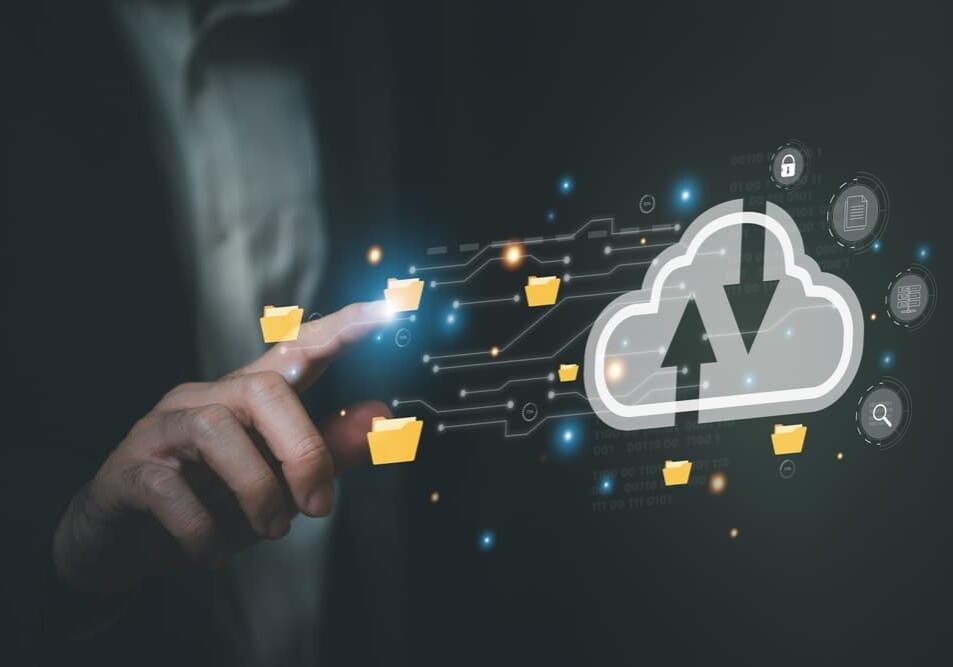Understanding the Basics
What is Backup Data?
At its core, backup refers to the process of creating copies of data, which can be used to restore the original data in case of its loss.
Think of it as having a spare key to your house - if you lose the original key, you can use the spare to gain access.

Data can be lost due to various reasons, such as:
For these reasons, having a backup is indeed like having a safety net. It ensures that your business's digital assets are recoverable, no matter what unexpected events occur.
Maintaining regular and secure backups helps businesses mitigate the risks associated with data loss, ensuring operational continuity and safeguarding their critical information.
The Importance of Backup and Disaster Recovery for Small Businesses
-
Protecting Against Data Loss
Having a reliable backup plan is crucial for protecting your business from data loss. Regular backups ensure that important information, such as customer details and financial records, can be recovered in case of system failures or cyber-attacks. This strategy is key to keeping your business operations running smoothly even when unexpected issues arise.
Choosing the right backup method is also essential. Whether it's on-site, off-site, or cloud-based, the goal is to have secure and accessible backups. This not only secures your data but also provides peace of mind, knowing that your business can quickly recover from any data loss incidents.
-
Minimizing Downtime
In today's rapidly evolving business landscape, any downtime is like hitting a pause button while everyone else plays on. When systems fail, it's not just about the immediate loss of revenue; it's the ripple effect – customer dissatisfaction, tarnished brand reputation, and missed opportunities.

-
Surviving Cyber Threats
Cyber threats are the modern-day pirates for small businesses. They can strike unexpectedly and take everything you've worked for. Especially with ransomware, where data is held hostage, the stakes are incredibly high.
An effective backup and disaster recovery strategy are your shields against these threats. They ensure that even if you're targeted, you have a way to restore your systems without bowing to the demands of cybercriminals. It’s about being resilient in the face of digital threats.
-
Compliance and Legal Requirements
For many businesses, especially in sectors like healthcare or finance, safeguarding data isn't just best practice – it's the law. Failing to protect sensitive information can lead to legal nightmares and severe fines.
Regular backups and a disaster recovery plan aren't just about protecting data; they're about aligning with these legal and compliance standards. They show that you're not just serious about your business, but also about the responsibilities that come with it.
-
Building Customer Trust
With data breaches becoming a regular occurrence, customers are increasingly cautious about where they share their personal information. When you demonstrate that your business has solid backup and disaster recovery measures, it's like putting a safety seal on your services.
This commitment to data protection fosters customer confidence. They know their information is in safe hands, which strengthens their trust and loyalty to your brand.
-
Peace of Mind
Finally, there's an intangible yet invaluable benefit – peace of mind. Knowing that your business is prepared for the worst scenarios allows you to focus on what you do best: growing your business.
It's about sleeping better at night, knowing that if disaster strikes, you have the plans, tools, and processes to handle it effectively.
This assurance enables you to take calculated risks and innovate, driving your business forward without the constant fear of 'what if'.
Creating a Backup and Disaster Recovery Plan

Best Practices for Effective Recovery Plan
Automate Backups
Imagine automated backups as your business's reliable co-pilot. They efficiently remove the human error element by ensuring backups are performed consistently and on time, without requiring manual intervention. Think of it as a 'set-and-forget' system, quietly working in the background, guaranteeing that your data is always securely backed up, ready to be retrieved whenever you need it.
Data Encryption
Encrypting your data is equivalent to storing your most valuable assets in a high-security vault. Encryption acts as an impenetrable shield, keeping sensitive information like customer details and financial records safe from unauthorized access. It's the ultimate guardian of your data’s confidentiality and integrity.
Regular Updates
Regularly updating your systems is like giving your car a routine tune-up to ensure it runs smoothly. Updating your software and systems often patches up security loopholes, making it harder for cyber threats to penetrate your defenses. Staying updated is synonymous with staying protected.
Comprehensive Coverage
Ensuring comprehensive coverage of your backups is like double-checking that every window and door in your home is secure before you step out. It’s not only about securing the data on your central systems but also about encompassing the mass of devices and applications used throughout your business.
Every bit of data, regardless of its location or usage, needs to be backed up. This approach ensures that you have a safety net for every aspect of your business data, providing complete peace of mind.
How Can Small Enterprise Technology Help
Navigating the intricate landscape of data backup and disaster recovery can be a daunting task for small businesses. In this challenging scenario, Small Enterprise Technology emerges as a beacon of support and expertise.
We offer comprehensive services in data backup and disaster recovery that can significantly aid small businesses in navigating and overcoming these complexities. Here's how our services align with the needs of small businesses for effective backup and disaster recovery:
-
Managed Backup Services
At Small Enterprise Technology, we pride ourselves on providing comprehensive managed backup services. Our dedicated team monitors backup statuses, conducts quarterly tests and reporting, and quickly remedies any performance issues. This meticulous approach guarantees regular and efficient backups, reducing your risk of data loss.
-
Comprehensive Protection
This step is like deciding how often to check on something valuable. How often should you back up your data? It's a balance between being cautious and practical. The more frequently you back up, the less data you'll lose in a disaster, but it also requires more resources. For some data, daily backups might be essential, while for others, weekly or monthly might suffice.
-
Proactive Monitoring and Management
We actively monitor and manage your backup systems to ensure continuous data protection. Our proactive approach, in line with industry best practices, includes regular updates and maintenance of backup systems. This ensures your backups are not only secure but also up to date.
-
Quick Restoration and Recovery
In the event of data loss or disaster, our quick restoration and recovery services are here to minimize your downtime. We understand the importance of maintaining business continuity and strive to reduce the impact of data loss on your operations.
-
Flexible and Customizable Solutions
Recognizing the uniqueness of each business, Small Enterprise Technology offers flexible, scalable, and customizable backup and disaster recovery solutions. Whatever the size of your business, we have a solution that can be tailored to meet your specific needs.
-
Compliance and Security
Our solutions include comprehensive security measures such as built-in end-to-end encryption, ensuring the protection of your data during storage and transit. We are committed to adhering to the best practices in data security and encryption, crucial for safeguarding sensitive information.
-
Continuity Solutions
Beyond basic data backup, we offer extensive continuity solutions covering data, applications, systems, and processes. Our aim is to ensure the uninterrupted continuation of your critical business functions, even in the face of major challenges.

Secure the Future of Your Business with Small Enterprise Technology
At Small Enterprise Technology, we're more than just a service provider; we're your ally in navigating the complexities of data backup and disaster recovery. Our expertise is in crafting solutions that empower your small business with resilience, efficiency, and peace of mind.
Take the first step towards securing your business's future. Reach out to Small Enterprise Technology today, and let's discuss how we can tailor our backup and disaster recovery solutions to meet your unique business needs.
